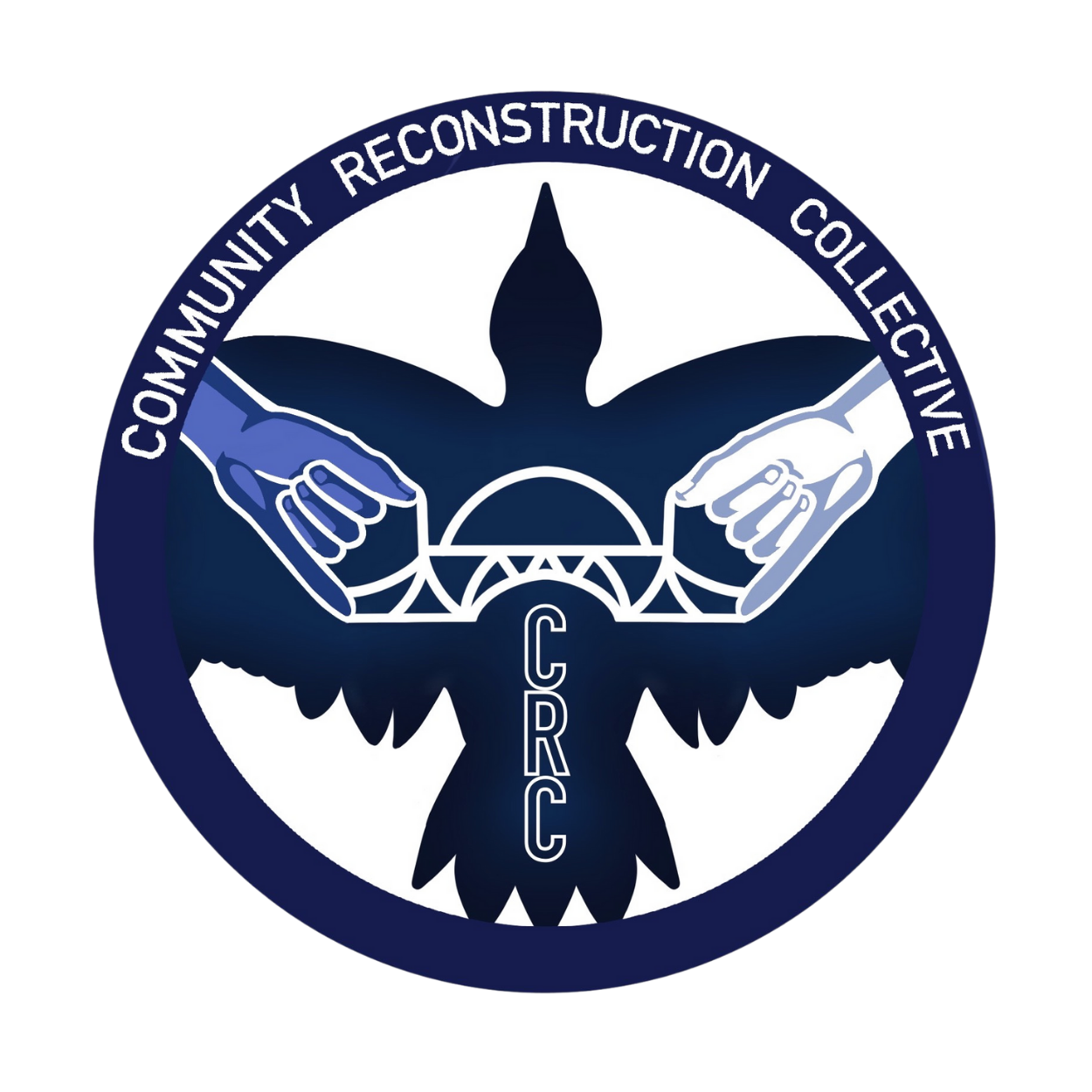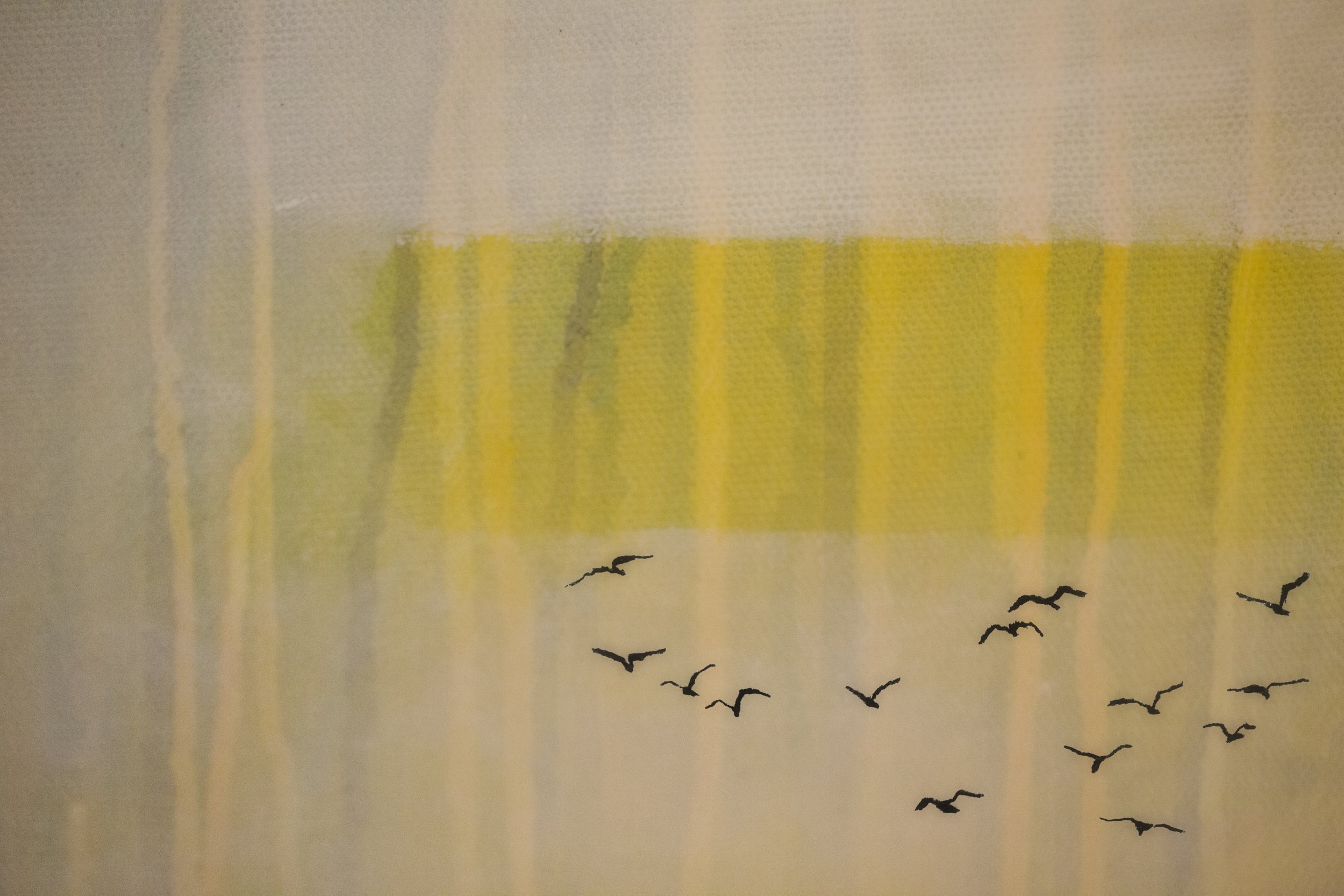
“My goal is to make my way into a career path that includes educating others in the issues facing people in active addiction and/or our marginalized community members. My greatest desire and ambition is to be a credible and educated voice for change for underserved communities.”
-Kari, WWU Human Services
Past Programs
Helping the helpers- scholarships and stories of students in the Human Services Program at WWU.
The Community Reconstruction Collective provided a scholarship opportunity for students in unpaid internships, along with a platform to share their stories and what this funding has meant to them. For lower income students, the largest barrier to participation is the loss of income during the course of their internship. With this program, our goal was to alleviate this financial burden and make it possible for 3 students to participate in internships that will further their careers. Internships for Human Services students are important opportunities to find career pathways they will thrive in while building professional networks. According to a CNBC article over 70% of jobs never reach a public listing. Attainment of work experience and opportunities to build social capital are essential in the hunt for work. To help relieve some of the pressure unpaid internships can have on students, the CRC offered scholarships to the following amazing WWU Human Services students so that they can continue to impact our community in positive ways.
My name is Julie Rivera-Hernandez, and I am a first-generation student. I am in my 4th year at Western Washington University and a part of the Human Services program. I am also a mentor for incoming freshmen who are a part of the Future Woodring Scholars program. After I graduate, I plan to enter the Rehabilitation Counseling program that Western offers at the Everett campus.
I am Karie Jane (KJ), from a small community in the Skagit Valley. I found my way to higher education as a thirty-five year old single mom trying to make a better life for myself and my son. I am a first-generation college student with a background of addiction and low socioeconomic standing, which certainly aided in my decision to apply to the Human Services program offered by the Woodring School at Western Washington University. I will graduate with my undergrad degree at the end of Winter quarter.
My name is David Schakarov, and I am a fourth-year Human Services student at Western Washington University. Counseling has become a passion of mine, after having an impactful experience with a mental health counselor at Western. I want to become a mental health counselor because I believe there must be a greater need for accessibility and resources to mental health services. After I graduate, I plan on going on to graduate school for mental health clinical counseling.
Below we have included an interview with all three recipients so that you can have the pleasure of knowing a little bit more about Julie, KJ and David. We at the CRC feel fortunate to have intersected with their paths and know our communities are better for their passions and personal missions.
Can you share a little bit about your story and how you came to your current path in education?
Julie-
When I was younger my mom would always tell me “estudia mija, para que no sufras como yo” which roughly translates to “study daughter, so you don’t suffer like I do”. Throughout my academic journey, I can recollect my mother waking up early in the morning and I understood that we had limited resources however my mom worked hard to provide for our family. At age 12, I was introduced to berry harvesting, an occupation that requires piece rate work instead of the traditional hourly rate. Workers, like my mother, endured intense summer heat and deteriorating bodies from the excruciating labor.
I was encouraged to continue to focus on my academic endeavors. Attending a dual language elementary school was how I was able to learn English as well as maintain Spanish at the same time. Going to college was implied at a young age; working in the fields made me realize and understand that many individuals are denied the opportunity to continue their education. I appreciated my mom’s sacrifice to provide me with an opportunity that she made by coming to the United States and knowing her hard work would not be in vain. These experiences have helped shape me into the person I am today and why I decided to pursue a career within human services.
KJ-
I’m KJ, short for Karie Jane. I grew up in a misty little town by the water in the Pacific Northwest, a scrappy and sensitive kid with a little more adversity than is ideal. I’m a first-generation college student, forty-three years old, single mom, addict in recovery, human services student with a big passion for trauma research and low barrier services. I started my higher education journey at Whatcom Community College when my son started kindergarten and transferred to Western in 2016.
My goal with my education is to bring issues that we face as a society into the light. To be an educated voice for the vulnerable. I hope to go to grad school and get my master’s degree in social work, to work in the field as a researcher or educator in trauma informed care.
David-
I have always been passionate about being a Human Services professional. I had a positive experience with a counselor at WWU's counseling center who impacted me tremendously and referred me to the Human Services major. I love communicating and listening to others and I believe I can utilize those skills meaningfully as a Human Services profession. I have a strong desire to support and serve the elderly in my professional career. I interned with Full Life Care, a non-profit organization dedicated to enhancing the quality of life for elders with disabilities, and I feel I have found my calling.
Why are paid internships important?
Julie
Most of the time to graduate with a bachelor’s degree, internships are required. The hour requirements per week can vary but most of the time it is advised to not be working another job. If you decide to not work and land an unpaid internship you are then left with no income. Internships are also a core component of networking and can lead to a position within the organization that you interned at after you have graduated. Paid internships would help avoid that. Not only would the student not have to worry about missing income, but they would be able to fully immerse themselves into their internship as well as not lose out on the opportunity to network.
KJ-
In 2017, facing complications due to unpaid internships, I dropped out of school. Unpaid internships put undue stress on some students, students like myself, who need to work full time. I’ve never felt more called to do anything besides work in the social justice field and, while I’m glad that I didn’t change paths to alleviate the stress of the internship requirement, it was tempting. It is my belief that paid internships would work to reduce this issue and allow people to continue on paths that most suit them, to have jobs that they feel called to, and ultimately that they are going to be most successful at, which I think aids in the overall health of a community.
David-
Paid internships are important because of the magnitude of work completed by interns. Interns are expected to focus on tasks like, outreaching to volunteers, direct service, and volunteer strategy management. There is an opportunity cost for interns who are doing unpaid internships and devoting all their time to their internship. Considering that most interns are trying to balance their internship, school, and a job, paid internships can be an effective tool to incentivize more efficient and productive work from interns. Interns sacrifice a variety of things to be a part of their internships and deserve some sort of financial compensation.
How do your education/career aspirations lead to positive community impact?
Julie-
I am planning to become a vocational counselor. As a vocational counselor I would be there for the worker who is injured on the job. I would communicate with employers, medical professionals, lawyers, family members, Labor and Industries, etc. in an effort to create next steps that take into account the workers strengths and weaknesses. As a Spanish speaker I will be able to prevent unnecessary delays relating to the language barrier as well as be able to make sure concerns/thoughts are not lost in translation. I hope to become a resource who bridges the gap between Spanish and English as well as become an advocate for client’s best interest.
KJ-
People doing what they love and are good at is better for everyone! My hopes for my own educational path going forward beyond my bachelor's degree is to find a master's program to further my understanding and education in trauma research and trauma informed care as if pertains to our drug addicted community members. My goal is to make my way into a career path that includes educating others in the issues facing people in active addiction and/or our marginalized community members. My greatest desire and ambition is to be a credible and educated voice for change for underserved communities.
David-
My educational/career aspirations will be to focus on earning a master's degree in Mental Health Clinical Counseling and becoming a counselor. I believe working with mental health services leads to a positive community impact because of the growing need for mental health counseling, especially within the elderly population. Due the pandemic and increased isolation, the need for mental health support has never been greater and I hope to be a part of our community healing. A short-term goal is to practice as a mental health counselor at a non-profit organization. A long-term goal of mine is to be the head of a counseling agency and focusing more on the management and operations of the agency.
What advice would you give to current high school students who are unsure about what they want to do after high school?
Julie-
Pursuing higher education comes with a lot of obstacles especially for first-generation students. What has given me motivation to continue would be my support system. This can consist of family members, friends, professors, mentors, community members, etc. Relationships that will ground you, as well as encourage and strengthen your journey whether that is higher education or a different career path.
KJ-
My passion for this work comes from my whole life as a person on the planet and if I had any advice to give to students making their way in the world, I would say to keep an open mind, be curious about yourself, don’t take the first thing that is handed to you, because when you do find where you want to be, you’ll know it. You’ll feel it. It might not be easy, but it will be worth it.
David-
I would tell current students who are unsure about what they want to do after high school that they should be open-minded and optimistic about any future opportunity. In my opinion, understanding yourself and what you are passionate about is the most important when thinking about educational and career aspirations. Open-mindedness goes a long way in helping a person find their passion. Work hard and take pride in your career choice!




